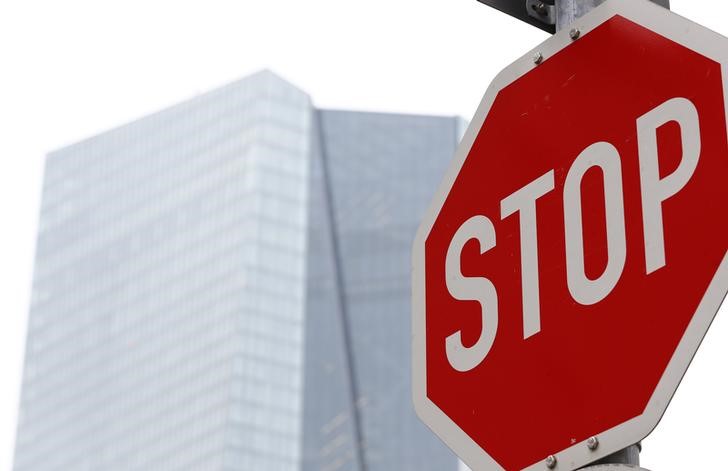BRUSSELS (Reuters) - Euro zone economic growth was slightly weaker than expected in the first quarter because of slower than anticipated expansion in Germany, but it was still the fastest rate of growth in almost two years, data showed on Wednesday.
The European Union's statistics office Eurostat said gross domestic product in the 19 countries sharing the euro rose 0.4 percent quarter-on-quarter in the January-March period for a 1.0 percent year-on-year rise.
Economists polled by Reuters had expected a 0.5 percent quarterly expansion and a 1.1 percent annual gain.
The growth is likely to have been helped by cheap energy and food prices, a weak euro and European Central Bank money printing so far this year.
The quarterly expansion was still the strongest since the second quarter of 2013 and marks a steady acceleration over the growth rates in 2014.
German growth slowed by more than expected as foreign trade weighed on Europe's largest economy.
Germany grew 0.3 percent on the quarter after pulling off a 0.7 percent expansion in the final three months of 2014. That undershot the consensus forecast in a Reuters poll for 0.5 percent growth.
It was also far weaker than in neighbouring France, where the economy expanded by 0.6 percent on the quarter, its strongest rate in two years, beating market expectations of a 0.4 percent expansion.
The euro zone's third biggest economy Italy grew slightly more than expected thanks to a pick up in domestic demand, fuelling hopes of a recovery this year after three years of recession.
Italian gross domestic product rose 0.3 percent following stagnation in the last quarter of 2014 and was flat on an annual basis, beating an average forecast of a 0.2 percent rise quarter-on-quarter, down 0.2 percent year-on-year in a Reuters survey of 31 analysts.

Greece, struggling to secure more funding from international creditors in exchange for growth-boosting reforms, contracted 0.2 percent on a quarterly basis but grew 0.3 percent year-on-year.